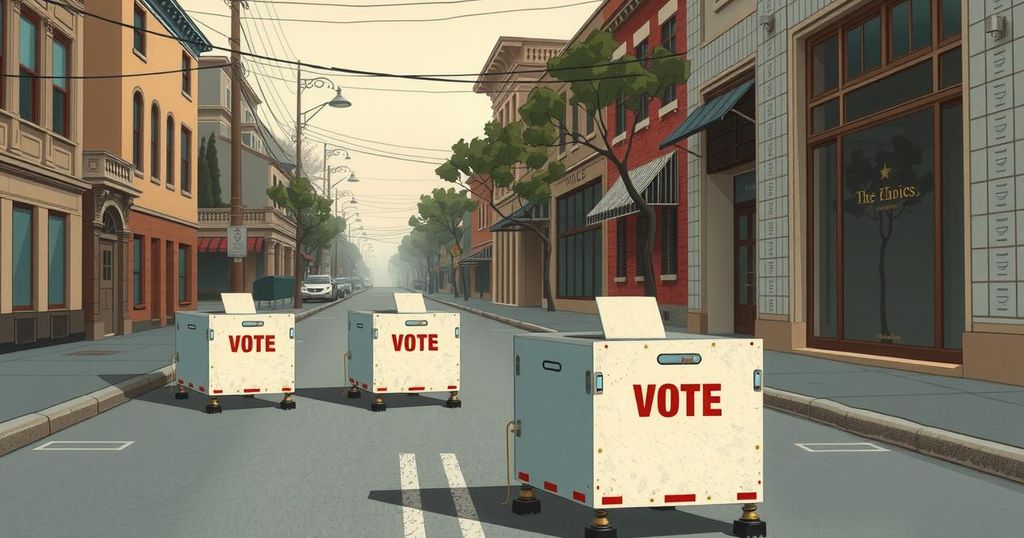Ghanaians will vote in a crucial election on Saturday, facing the worst economic crisis in decades. With 18.7 million voters registered, the contest is largely between Mahamudu Bawumia and John Mahama. While Ghana has a history of democratic stability, recent economic instability, high inflation, and illegal mining issues overshadow the political atmosphere. The outcome of the elections could significantly influence the nation’s recovery.
Ghana is preparing for a pivotal general election amidst the gravest economic crisis of a generation. Approximately 18.7 million citizens are registered to participate in this election, which will test the nation’s democratic resilience amid regional instability marked by violence and coups. Ghana’s past reputation as a model of democracy is jeopardized by rising inflation, job scarcity, and public disillusionment, with 82% of citizens believing the country is on the wrong track, according to Afrobarometer research.
The election features a two-horse race primarily between Vice President Mahamudu Bawumia of the New Patriotic Party (NPP) and former President John Dramani Mahama of the National Democratic Congress (NDC). Both candidates, despite their parties’ contrasting ideologies—NPP’s right-leaning stance against NDC’s social democratic principles—offer limited divergent solutions to the economic challenges facing Ghana.
In total, 276 parliamentary seats will be contested, with both the NPP and NDC currently holding 137 each and one independent member often voting with the ruling party. Final campaign rallies underscored the urgency for economic improvement, with Bawumia promising to continue the previous government’s stabilization efforts, while Mahama pledged to “reset” critical sectors of the nation’s governance and economy.
The atmosphere leading up to the election in Accra reflects mixed sentiment; while promotional displays and energetic political events abound, the underlying economic distress remains at the forefront of voter priorities. Ghana’s recent foreign debt default and soaring inflation, which peaked at 54% last year, further underscore the urgent need for effective governance in times of economic hardship.
The illegal gold mining issue, commonly referred to as galamsey, has significantly impacted the campaign. This activity, driven by individuals struggling to secure jobs in an unstable economy, has caused serious environmental consequences. As Ghana continues to grapple with these multifaceted challenges, the election results may shape the country’s future direction and governance practices.
In conclusion, Ghanaians are heading to the polls amidst significant economic turmoil, challenging the nation’s longstanding democratic principles. With the election primarily revolving around two candidates offering similar economic platforms, voters’ responses will be indicative of their desire for substantial change. The urgent economic crisis, accentuated by inflation, unemployment, and illegal mining activities, amplifies the stakes of this election and highlights the necessity for effective governance moving forward.
Original Source: apnews.com






